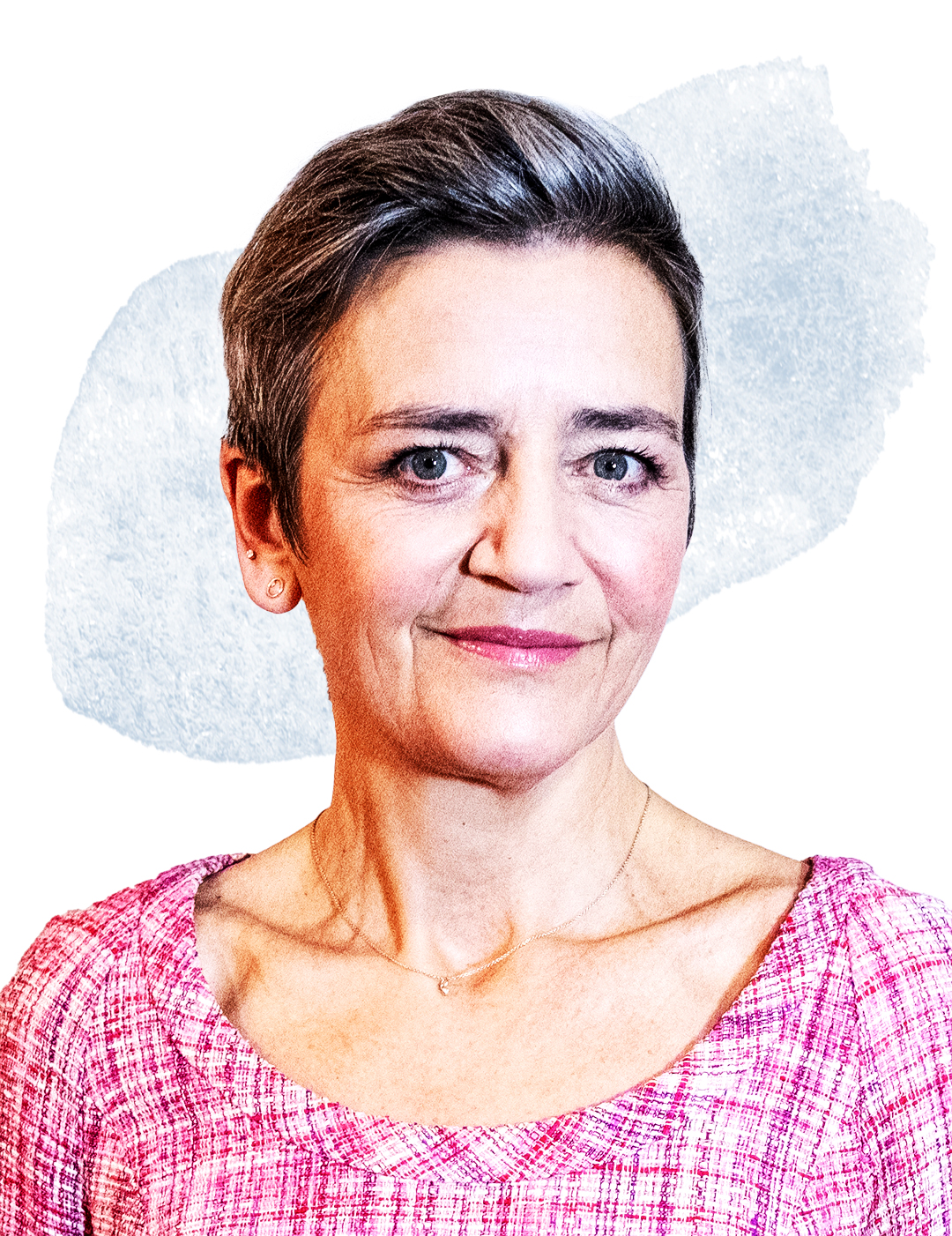As Europe’s digital czar, Margrethe Vestager has built quite the reputation. The 55-year-old Dane has shown a rare willingness to investigate—and even fine—some of the world’s biggest tech giants over violations of antitrust rules. And now she has set her sights on an even greater challenge: protecting democratic values in Europe from the risks of AI.
As Vestager sees it, AI has enormous potential to unlock a new wave of productivity and provide solutions to societal challenges like climate change and access to health care. But there are major risks, not least that the rise of AI-powered disinformation could cause people to “simply stop believing in anything,” Vestager tells TIME. “It’s not that they’ll believe something that is outrageous or fake, as such. It’s even more fundamental: that you stop believing what you see, because it may be fake.”
This risk is palpable in the run-up to 2024—a pivotal year for democracy—with make-or-break elections planned in the U.S., the E.U., India, and Mexico, to name a few. That’s why, Vestager says, it’s “absolutely essential that the way AI is being used in these campaigns is not undermining what we’re trying to achieve, which are open, fair, and transparent elections.”
To that end, Vestager has spent the past two years spearheading the creation of the E.U. Artificial Intelligence Act, which, if adopted, stands to become the world’s first comprehensive AI law. Vestager says that the E.U.’s proposed rules, which would ban controversial uses of AI such as social scoring and facial recognition in public, follow a “risk-based approach” that ensures its uses remain in line with European and democratic values while still encouraging innovation.
While the E.U. hopes to reach a final agreement on legislation by the end of the year, Vestager says that AI regulation is fundamentally a global affair and has called for the creation of an “international code of conduct” to keep up with its rapid advancements. “We have an extreme election year ahead of us,” she says, “and technology is developing very, very fast.” The E.U.’s AI law could be Vestager’s final contribution to this. In September, she announced that she is taking a leave of absence from the Commission in order to focus on her candidacy to lead the European Investment Bank. If successful, she will take up her new post in January 2024.
- The 100 Most Influential People of 2024
- How Far Trump Would Go
- Why Maternity Care Is Underpaid
- Scenes From Pro-Palestinian Encampments Across U.S. Universities
- Saving Seconds Is Better Than Hours
- Why Your Breakfast Should Start with a Vegetable
- Welcome to the Golden Age of Ryan Gosling
- Want Weekly Recs on What to Watch, Read, and More? Sign Up for Worth Your Time
